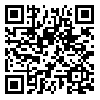Volume 3, Issue 5 (6-2015)
نظریه و عمل 2015, 3(5): 111-128 |
Back to browse issues page
Download citation:
BibTeX | RIS | EndNote | Medlars | ProCite | Reference Manager | RefWorks
Send citation to:



BibTeX | RIS | EndNote | Medlars | ProCite | Reference Manager | RefWorks
Send citation to:
Vafaei R, Sobhaninejad M. (2015). Analysis of Multicultural Education component In Textbooks. نظریه و عمل. 3(5), 111-128. doi:10.18869/acadpub.cstp.3.5.111
URL: http://cstp.khu.ac.ir/article-1-2507-en.html
URL: http://cstp.khu.ac.ir/article-1-2507-en.html
Abstract: (15437 Views)
The present paper aims to investigate the amount of multi-cultural education components in the textbooks of secondary schools from 2013 to 2014. It is conducted through text-analysis. The components of Multi-cultural education were initially collected from theoretical text and research background using document analysis and then they were numbered in the textbooks of secondary schools. The units of analysis were sentence, question, picture, activity, and the poem in the textbooks. Research tools were bibliography cards and inventory form in document and text analysis respectively. Data were analyzed by using descriptive statistics. The statistical population is the textbooks of secondary schools from 2013 to2014 and samples were Iran and International History I, Iran and International History II, History (Pre-University Schools), Social Studies (Secondary Schools), Sociology I, Sociology II, Social Studies (Pre-University Schools) which were expected to contain multi-cultural education components. The most significant results are as follows: out of 180 frequencies in the text books of secondary schools, History I with 76, i.e. 42.22% contained the most multi-cultural education components and Social Studies of secondary school with 5, i.e. 2.77% contained the least components. Among the components, “introducing various cultures to students in the content of textbooks” had the largest number of frequencies, i.e. 59 and “helping to understand and tolerate different opinions from various cultures, and defining multi-culture homework for students in the content of textbooks” had the smallest one, only 1, i.e. 0.55%.
Type of Study: Research |
Accepted: 2017/07/2 | Published: 2017/07/2
Accepted: 2017/07/2 | Published: 2017/07/2
| Rights and permissions | |
 |
This work is licensed under a Creative Commons Attribution-NonCommercial 4.0 International License. |






